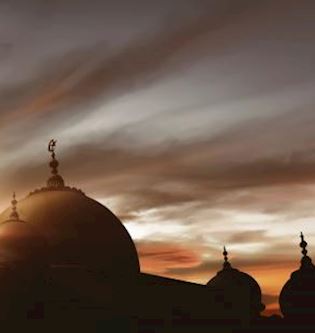Understanding the Sacred Months in Islam: Importance and Significance
What are the names of 12 months in Islam?
Muḥarram, Ṣafar, Rabiʿ al-Awwal, Rabīi al-Thani, Jumada al-Awwal, Jumada al-Thani, Rajab, Shaʿbān, Ramaḍan, Shawwāl, Dhu al-Qaʿdah, and Dhu al-Ḥijjah.
What are the Four Sacred Months in the Islamic Calendar?
The four sacred months in Islam are Muharram, Rajab, Dhul Q’ada, and Dhul Hijjah.
While Ramadan and Dhul Hijjah are popular because one is the month of fasting and the other is the month of Hajj; both are 2 of the five pillars of Islam. However, the four sacred months are mentioned in the Quran as being ordained by Allah, and bad deeds committed during these months are considered more severe.
The fact that they’re sacred means that no fighting, transgression, or injustice should be done in those sacred months.
These months were considered sacred even before the advent of Islam and were respected by the Arabs.
“Time has completed a cycle and assumed the form of the day when Allah created the heavens and the earth. The year contains twelve months of which four are sacred, three of them consecutive, Dhul-Qa’dah, Dhul-Hijjah and Muharram, and also Rajab of Mudar which comes between Jumada and Sha’ban.”
[Sahih al-Bukhari]
Why these months are considered sacred in Islam?
“Indeed, the number of months with Allah is twelve [lunar] months in the register of Allah [from] the day He created the heavens and the earth; of these, four are sacred. That is the correct religion, so do not wrong yourselves during them […]”
(Quran 9: 36)
- Allah has placed blessings within three things: people, places, and time, and these months are considered sacred because they are months ordained by Allah and associated with the creation of the universe and the establishment of the laws of time.
- The Quran states that Allah chose messengers and prophets to guide humanity, and these months are a reminder of the importance of following the right religion.
What virtues and benefits of observing the sacred months
- The four sacred months are considered a time of great virtue and reward for Muslims, and sins committed during these months are considered worse and more severe in the Sight of Allah.
- Fasting during these months is considered a means of drawing closer to Allah, and good deeds are worth more during these sacred months.
Fasting on the day of Arafah is an expiation for the preceding year and the following year.” [Sahih Muslim]
Heightening God-consciousness and taqwa during these months
- The sacred months heighten one’s sense of presence and mindfulness of Allah, and help one be more disciplined and God-conscious.
- Taqwa is a virtue that is important for all months, not just the sacred months, and Allah reminds the believers that He is with those who are pious.
Sanctified throughout time: a brief history of the sacred months
- The sacred months were deemed sacred even in pre-Islamic Arabia, and during these seasons, the sound of clanging swords was absent as the Arabs respected the sanctity of these periods.
- The Hijri calendar, also known as the Islamic calendar, is a lunar calendar consisting of 12 months in a year of 354 or 355 days, and the four sacred months are considered to be of great importance in Islamic tradition and culture.
Observing the Sacred Months
Recommitting to obligations and giving to charity during these months
…and whoever honors the symbols of Allah, it is certainly out of the piety of the heart.” (Quran 22: 32)
- Increase good deeds and those things that will reignite our connection with our creator, and seek to maximize our gain from the generosity Allah spreads out for the Ummah of His beloved.
- Give in charity, as good deeds are worth more during these sacred months, and charity is a means of drawing closer to Allah.
- Reflect on one’s actions and make amends for any wrongs committed, and avoid wronging others and instead focus on doing good deeds.
The four sacred months are a time of great virtue and reward for Muslims and are considered sacred because they are associated with the creation of the universe and the establishment of the laws of time.By understanding the importance of these four sacred months, we can better appreciate their significance in our lives and use them as an opportunity to renew our faith and commitment to Allah.















